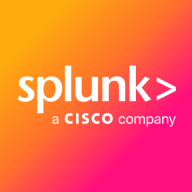

Splunk Enterprise Security and Security Onion are competing products in cybersecurity analytics. Splunk stands out for its data analytics capabilities, while Security Onion is recognized for cost-effectiveness and performance efficiency.
Features: Splunk Enterprise Security provides robust data integration, advanced threat detection, and real-time monitoring. Security Onion emphasizes open-source flexibility, strong network security monitoring, and user-friendly operation. Splunk manages expansive data handling with a focus on integrating diverse data sources. Security Onion ensures streamlined analysis with efficient processing of security alerts and a community-driven approach.
Ease of Deployment and Customer Service: Splunk requires a comprehensive setup and technical expertise, providing a professional support network for tailored assistance. Security Onion offers easier deployment and benefits from a strong community support structure, allowing users to leverage collective insights while maintaining a straightforward installation process.
Pricing and ROI: Splunk demands a substantial initial investment yet yields significant ROI through enriched security insights and analytics, reflecting its advanced features. Security Onion offers an affordable alternative, leveraging open-source benefits to provide a satisfactory ROI by maximizing resource efficiency and reducing costs.
| Product | Market Share (%) |
|---|---|
| Splunk Enterprise Security | 6.8% |
| Security Onion | 3.1% |
| Other | 90.1% |

| Company Size | Count |
|---|---|
| Small Business | 112 |
| Midsize Enterprise | 50 |
| Large Enterprise | 266 |
Security Onion is an open-source Linux distribution for intrusion detection, network security monitoring, and log management. It offers comprehensive solutions for enterprises seeking to enhance their cybersecurity infrastructure.
Security Onion provides a full suite of tools to detect and respond to cybersecurity threats efficiently. As a robust and versatile distribution, it includes capabilities for real-time analysis, network visibility, and threat detection, making it indispensable for security operations centers. Users value this tool for its integration of open-source software with advanced analytics, affording professionals a detailed overview of network traffic and potential intrusions.
What are Security Onion’s most important features?
What benefits or ROI should you look for in reviews?
Security Onion finds extensive application in industries such as finance, healthcare, and government sectors, where robust network monitoring is critical. Its ability to integrate with existing security tools makes it a preferred choice for organizations looking to strengthen their cybersecurity posture.
Splunk Enterprise Security delivers powerful log management, rapid searches, and intuitive dashboards, enhancing real-time analytics and security measures. Its advanced machine learning and wide system compatibility streamline threat detection and incident response across diverse IT environments.
Splunk Enterprise Security stands out in security operations with robust features like comprehensive threat intelligence and seamless data integration. Its real-time analytics and customizable queries enable proactive threat analysis and efficient incident response. Integration with multiple third-party feeds allows detailed threat correlation and streamlined data visualization. Users find the intuitive UI and broad compatibility support efficient threat detection while reducing false positives. Despite its strengths, areas such as visualization capabilities and integration processes with cloud environments need enhancement. Users face a high learning curve, and improvements in automation, AI, documentation, and training are desired to maximize its potential.
What Are the Key Features of Splunk Enterprise Security?In specific industries like finance and healthcare, Splunk Enterprise Security is instrumental for log aggregation, SIEM functionalities, and compliance monitoring. Companies leverage its capabilities for proactive threat analysis and response, ensuring comprehensive security monitoring and integration with various tools for heightened operational intelligence.
We monitor all Log Management reviews to prevent fraudulent reviews and keep review quality high. We do not post reviews by company employees or direct competitors. We validate each review for authenticity via cross-reference with LinkedIn, and personal follow-up with the reviewer when necessary.